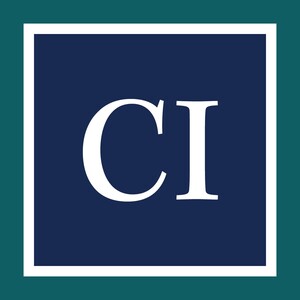NEW YORK, Dec. 9, 2024 /PRNewswire/ -- Corporate Insight, in partnership with the SPARK Institute, today released results from their comprehensive 2024 financial literacy survey, highlighting concerning trends across high school students, college students, and recent workforce entrants. The survey, conducted in summer 2024, examined 1,559 respondents' financial Aptitude, Behaviors, and Confidence levels—the ABCs of financial literacy.
"This year's expanded survey provides crucial insights into how financial literacy evolves—or doesn't—as young people transition from education to employment," says Michael Ellison, President of Corporate Insight. "The findings reveal that from high school to the first few years in the workforce, young people lack the ABCs of financial literacy. Earlier, more effective financial education can put young people on the path to financial wellness later in life."
The survey found that across all groups, over half of respondents demonstrated lower financial literacy levels, with recent workforce entrants showing no significant improvement over high school and college students. Overall, most respondents did not feel financially well-prepared by their formal schooling.
"These findings underscore the urgent need for more robust financial education for young people, before and after they enter the workforce," notes Tim Rouse, Executive Director of the SPARK Institute. "The fact that financial literacy doesn't significantly improve even after joining the workforce suggests we're missing critical opportunities to establish strong financial foundations for life."
Key Survey Findings:
- Financial literacy rates remain low across all surveyed groups, with 52% of high school students, 59% of college students, and 53% of recent hires demonstrating lower literacy levels
- Only 26% of respondents were very or extremely concerned about their ability to retire in their 60s, indicating a lack of urgency around retirement planning
- Most respondents believe 30 is the appropriate age to start saving for retirement, but recent hires with higher financial literacy suggested starting as early as age 23
- Respondents without retirement accounts who think they have time to start an account later said that, on average, the right time to start saving for retirement was age 40
- Parents are the most popular source of financial information and advice, even for older respondents, while employers, teachers and professional financial advisors are the least popular
Particularly concerning is the survey's revelation that groups with high and low levels of financial stress both have reasons to avoid saving for retirement. Respondents with high levels of financial stress are more likely to think they don't have enough money to save. Those with low levels of financial stress were the most likely to report not needing to start planning for retirement yet.
"The survey results emphasize the need for coordinated action among educational institutions, employers, and the financial services industry to improve financial literacy outcomes," adds Ellison. "Early intervention and more comprehensive financial education programs appear crucial for developing long-term financial wellbeing among younger generations."
About Corporate Insight
Corporate Insight (CI) delivers competitive intelligence, user experience research and consulting services to the nation's leading financial services, insurance and healthcare institutions. As the recognized industry leader in customer experience research for over 30 years, our best-in-class research platform and unique approach of analyzing the actual customer experience helps organizations advance their competitive position in the marketplace.
About SPARK Institute
The SPARK Institute represents the interests of a broad-based cross section of retirement plan service providers and investment managers, including members that are banks, mutual fund companies, insurance companies, third-party administrators, trade clearing firms, and benefits consultants. Through the combined expertise of its member companies, the Institute provides research, education, testimony, and comments on pending legislative and regulatory issues to members of Congress and relevant Government agency officials. Collectively, its members serve approximately 100 million participants in 401(k) and other defined contribution plans.
For inquiries or to interview with an analyst, contact:
Patrick Flood
646-876-7535
[email protected]
SOURCE Corporate Insight

WANT YOUR COMPANY'S NEWS FEATURED ON PRNEWSWIRE.COM?
Newsrooms &
Influencers
Digital Media
Outlets
Journalists
Opted In





Share this article